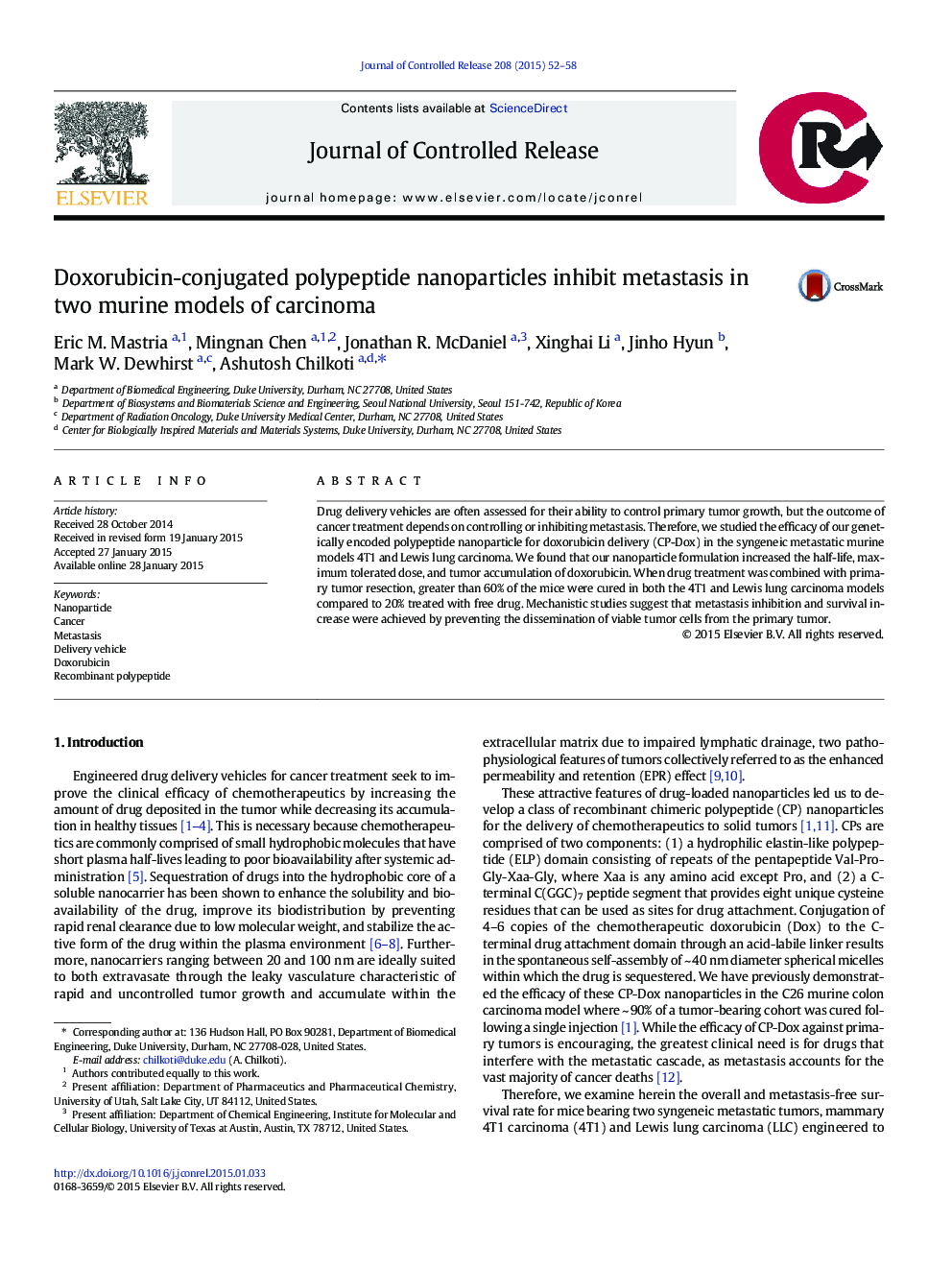| کد مقاله | کد نشریه | سال انتشار | مقاله انگلیسی | نسخه تمام متن |
|---|---|---|---|---|
| 1423738 | 1509041 | 2015 | 7 صفحه PDF | دانلود رایگان |
Drug delivery vehicles are often assessed for their ability to control primary tumor growth, but the outcome of cancer treatment depends on controlling or inhibiting metastasis. Therefore, we studied the efficacy of our genetically encoded polypeptide nanoparticle for doxorubicin delivery (CP-Dox) in the syngeneic metastatic murine models 4T1 and Lewis lung carcinoma. We found that our nanoparticle formulation increased the half-life, maximum tolerated dose, and tumor accumulation of doxorubicin. When drug treatment was combined with primary tumor resection, greater than 60% of the mice were cured in both the 4T1 and Lewis lung carcinoma models compared to 20% treated with free drug. Mechanistic studies suggest that metastasis inhibition and survival increase were achieved by preventing the dissemination of viable tumor cells from the primary tumor.
Doxorubicin-conjugated polypeptide nanoparticles (CP-Dox) inhibit metastasis by preventing the escape of viable cancer cells from the primary tumor to a greater extent than freely dissolved doxorubicin (free Dox).Figure optionsDownload high-quality image (182 K)Download as PowerPoint slide
Journal: Journal of Controlled Release - Volume 208, 28 June 2015, Pages 52–58
